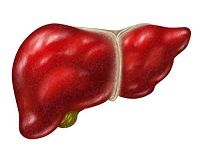Hepatitis C: Interferon Treatment Triggers Anti-Interferon Antibodies
Even with direct-acting antivirals, not all patients with chronic hepatitis C can be cured. That might be because patients develop antibodies to interferon, a drug that is still part of DAA regimens, Italian researchers report.

Patients who have chronic hepatitis C (CHC) who are undergoing antiviral treatments, including those receiving therapies containing pegylated interferon alpha, are likely to develop anti-interferon alpha antibodies (anti-IFNa-AB, Italian researchers found. The study, which was published in the Journal of Hepatitis Research in December, 2015, was conducted by Elisabetta Loggi, PhD, of the Department of Medical and Surgical Sciences at the University of Bologna, and colleagues.
The treatment for CHC is steadily improving. The standard of care until quite recently has been based on pegylated interferon alpha (PEG-IFNa) and ribavirin (RBV). Newer treatments use direct acting antiviral (DAA) agents, but those continue to include PEG-IFNa and RBV.
There are limitations to this therapy, including “suboptimal response rates, severe side effects, and high costs.” And, though the current therapies available are far more effective than those of the past, some cases of CHC cannot be cured. The researchers suggest that “the development of serum anti-IFNa-AB that are able to bind and neutralize the biologic activity of IFNa” plays a more complex role than currently understood.
The current study is “a retrospective study on stored serum samples from CHC patients.” The researchers state two purposes: “To assess the presence of anti-INFa-AB during PEG-IFNa plus RBV treatment in CHC” and “To assess the impact of anti-IFNa-Ab on serum levels of INFa and virological response to treatment.”
The researchers looked at samples from “90 consecutive CHC patients who had received antiviral treatment with PEG-IFNa2a and RBV in the period from 2008 to 2010” at a liver treatment center in Bologna, Italy. Of those, 76 patients “were previously non-responders to one or more courses of IFNa/PEG-IFNa plus RBV.” They found that “in general, there was a trend of anti-IFNa-Ab increase from baseline to week 12.” However, the increase was “highly variable.”
There were three final conclusions reached by the authors of the study. The first was that “the positivity of anti-IFNa-Ab at baseline was independent from the time of wash out from previous course of therapy,” which is an important point for those who may need a second round of treatment. The second was “the development of antibodies is most likely responsible for at least part of the non-response rates in a population of difficult to treat patients, being a non-necessary but sufficient condition of treatment inefficacy.”
Finally, the researchers concluded that “anti-IFNa-Ab positive patients retreated with an adequate IFN-free regimen have the chance to clear the infection, while if they undergo an additional course of therapy containing PEG-IFNa, these chances may be significantly reduced.”